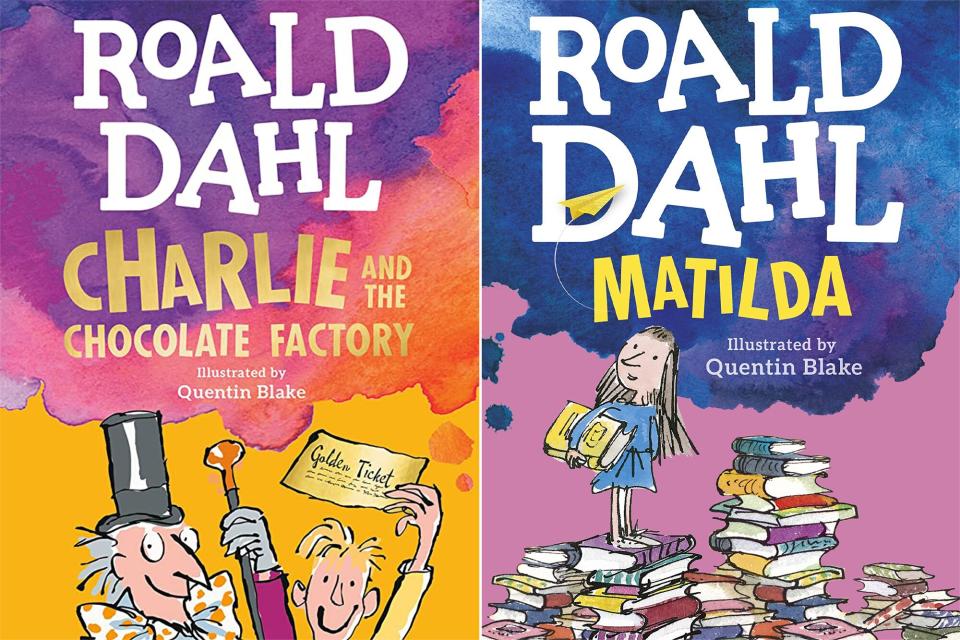Authors criticize decision to edit Roald Dahl's children's books to be more inclusive
- Oops!Something went wrong.Please try again later.
Many authors are coming forward to criticize publisher Penguin Random House for the decision to edit Roald Dahl's children's books to be more inclusive.
Many of the late author's classic books — including Charlie and the Chocolate Factory, James and the Giant Peach, The BFG, and more — have been altered, with hundreds of references to body weight, gender, and race updated to modern standards. According to the Wall Street Journal, references to Augustus Gloop in Charlie and the Chocolate Factory have been changed from "enormously fat" to just "enormous," The Cloud Men in James and the Giant Peach are now Cloud People, The BFG's giants now eat "people" instead of "men, women and children," and Matilda's titular character now reads Jane Austen instead of Rudyard Kipling. Other changes include the deletion of words "fat," "ugly," "black," "white," as well as any references to mental illness as "mad" or "crazy," and references to specific genders, in an effort to be less offensive for contemporary readers.

Penguin Random House (2)
In the most recent editions of the books, the publisher has added a disclaimer on the copyright page that says, "Words matter. The wonderful words of Roald Dahl can transport you to different worlds and introduce you to the most marvelous characters. This book was written many years ago, and so we regularly review the language to ensure that it can continue to be enjoyed by all today." The edits were made by "sensitivity readers" from an organization called Inclusive Minds, "a collective for people who are passionate about inclusion, diversity, equality and accessibility in children's literature, and are committed to changing the face of children's books."
The updates to Dahl's books immediately drew backlash from other authors. On Saturday, Salman Rushdie, who has dealt with his own works being censored and banned in many Islamic countries, said on Twitter, "Roald Dahl was no angel but this is absurd censorship. Puffin Books and the Dahl estate should be ashamed." When another user replied that he "really didn't need to qualify it with the 'no angel' part to satisfy the censorious left," Rushdie responded, "He was a self confessed antisemite, with pronounced racist leanings, and he joined in the attack on me back in 1989… but thanks for telling me off for defending his work from the bowdlerizing Sensitivity Police."
On Monday, bestselling author Philip Pullman appeared on the BBC Today show to point out how the original versions of Dahl's books are already in schools, libraries, and children's homes. "Are you going to round up all the books and cross them out with a big, black pen?" he said. "If Dahl offends us, let him go out of print."
This isn't the first time Dahl's books have been at the center of controversy. The author rewrote the characters of the Oompa Loompas in Charlie and the Chocolate Factory soon after it was published in the 1960s as they were originally Black slaves from "the African jungle." More recently, Dahl's family released an apology in 2020 for the writer's anti-Semitism. "We hope that, just as he did at his best, at his absolute worst, Roald Dahl can help remind us of the lasting impact of words," the statement on the Roald Dahl Story Company website says.
Related content:

